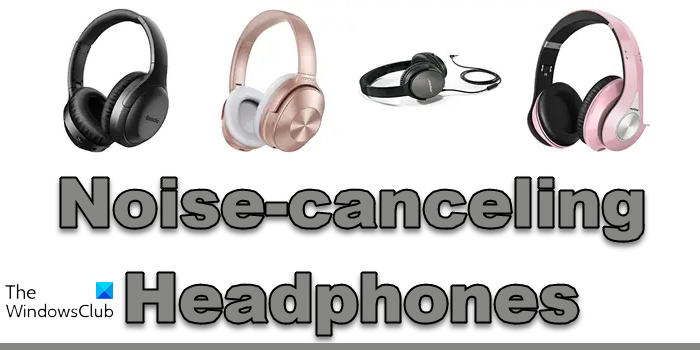If you have your earphones plugged in, the background noise of moving vehicular traffic (continuous honking) or the roar of an airplane engine can bother you. Wearing something universal like Noise-canceling headphones can save you from discomfort. Here’s a post describing what noise-canceling headphones are, which ones are the best for you and your needs – and how they work.
What are Noise-canceling Headphones

As the name suggests, the noise-canceling headphone is a piece of audio technology that creates silence rather than noise. These devices are designed specifically to prevent sound waves from reaching your ears. As such, when plugged in, noise-canceling headphones create an exceptionally comfortable and restful listening environment in areas with loud noise.
How do noise-canceling headphones work
Noise-canceling headphones have a built-in audio processor that detects sounds and produces the opposite wave pattern. This opposite wave pattern or inverse wave sent through the driver of your headphones cancels the intruding sound wave. Unlike mobile phones, noise-canceling headphones don’t emit radiation. So, they don’t really pose a threat that may arise from frequent use of a mobile phone and, thus, are safe for use.
Generally, there are 3 types of noise-canceling headphones that are used interchangeably but show subtle differences.
- Headphones with passive noise cancellation technique
- Headphones with active noise cancellation technique
- Headphones with adaptive noise cancellation technique
Here are some essential things to remember to pick the right one for you.
Headphones with Passive Noise Cancellation technique
These headphones rely more on a phenomenon known as ‘Noise Isolating’. It is the most common type of noise-canceling technique available in headphones. The headphones are designed in such a way that its shape and used materials block noise from reaching your ears. The extra padding acts as a cushion to form a strong seal around your ears.
Headphones with Passive Noise Cancellation techniques work best in conditions requiring the isolation of irregular and high-frequency sounds. Although very efficient in purpose, they are bulky. So, if you are looking for a better and lighter alternative, try noise-isolating earbuds.
Headphones with Active Noise Cancelling (ANC) Technique
Like Passive Noise Cancellation, ANC headphones also use their shape and design to mute external noise. In addition to this, they use advanced technology. For example, it has a small built-in audio processor, which detects and analyzes the sound pattern of incoming noise and then cancels noise by generating a mirror “anti-noise” signal. So, basically, what these headphones do is emit a wave that is the direct inverse of what it’s capturing. The peaks and troughs of the sound waves generated in the process meet one another and cancel each other out, resulting in a flatline.
If you travel a lot, then headphones with ANC come across as the right tool to help you experience quietness even in the roar of an airplane engine or in heavy traffic. Furthermore, these headphones can help you concentrate or sleep in these environments.
Having said that, there’s one shortfall associated with these headphones – ANC headphones require a battery to activate their noise-canceling feature. The added component results in an increase in both the price and weight.
Headphones with Adaptive Noise Cancelling Technique
Adaptive Noise Cancellation is an alternative technique of estimating signals corrupted by additive noise or interference. This technique is relatively new in the headphones industry. It differs from the former in a way that it adjusts the strength of cancellation based on the level and type of the surrounding noise. So, the noise cancellation is high (stronger) when background noise is loud (train rumbling) and small when background noise is low (chatter, baby cries).
If your headphones feature this technology, it is advisable to activate this mode. Plus, some apps allow you even to fine-tune the settings and set your desired level of noise canceling. The adaptive Noise Cancelling technique has one disadvantage – the more noise cancellation the more aggressively it cleans the sound. This negatively impacts the voice quality.
Noise-canceling headphones are worth buying for travelers seeking peace on noisy journeys. They significantly reduce ambient sounds, ensuring a quieter experience, even without music. While they can’t block all noise, the reduction they provide enhances overall comfort, making them a valuable investment for frequent travelers.
In all, the utility of these noise-canceling headphones largely depends on what you intend to do with your headphones and where you intend to use them. They are not perfect as they can’t create silence or completely eliminate noise; they merely reduce it. Some of the best ones are available here on Amazon.
Leave a Reply